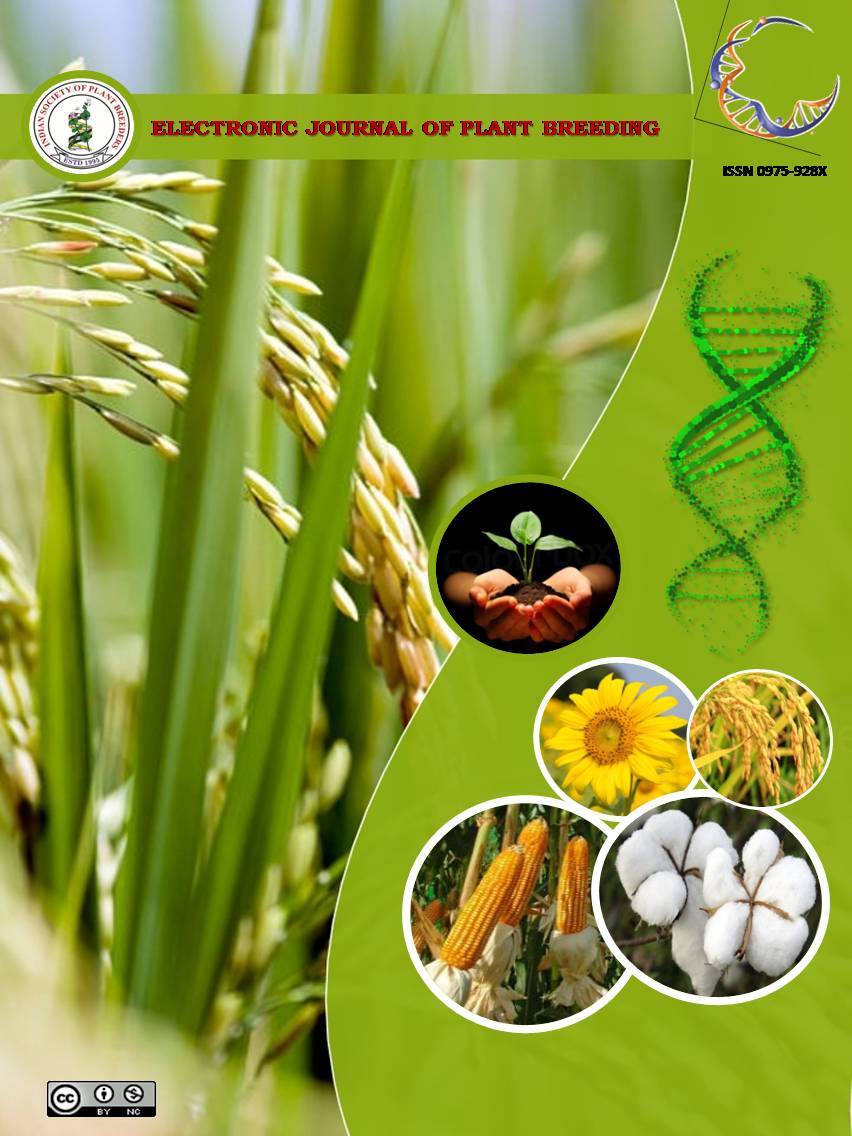Assessment of genetic variability in newly developed rice (Oryza sativa L.) hybrids
Abstract
The knowledge of genetic variability in a given crop species for characters under improvement is important in any plant breeding programme. Genetic parameters for yield and its correspondent characters in rice were estimated from a trial conducted at Rice Research Centre, Agricultural Research Institute, PJTSAU, Hyderabad during Kharif, 2017. In the present study, four Cytoplasmic Male Sterility lines, eight male lines and thirty-two hybrids and four checks were evaluated. The analysis of variance showed highly significant differences among the genotypes for all the characters, indicated the presence of enormous amount of genetic variability. High phenotypic coefficient of variation (PCV) and genotypic coefficient of variation (GCV) was observed for number of grains per panicle (26.55, 23.16) and grain yield per plant (21.67, 21.24) indicating that these characters could use as selection for crop improvement. High heritability coupled with high genetic gain as percentage of mean was observed for number of grains per panicle (70.26, 41.61) and 1000 grain weight (61.9, 29.52) which showed presence of additive gene action and thus the chances of fixing by selection will be more to improve such traits through pure line selection in the evaluated genotypes.

It is certified that:
- The corresponding author is fully responsible for any disputes arising due to the publication of his/her manuscript.
- The article has been seen by all the authors who are satisfied with its form and content.
- The sequence of names of authors in the by-line is as per their relative contribution to this experiment, giving due credit to all scientists who made notable contribution to it.
- All the authors fully understand that inclusion of any other co-authors or exclusion of any co-authors is not possible once the article has been submitted to the journal.
- The corresponding author takes full responsibility for this article.
- The address of the organization where the research was conducted is given.
- The article is exclusive for this journal, and the results reported here have not been sent (and will not be sent during its consideration by this journal) for publication in any other journal.
- Authors agree to abide by the objective comments of referees and do agree to modify the article into a short note as per the recommendation, for publication in the Electronic Journal of Plant Breeding.
- If published in Electronic Journal of Plant Breeding, the copyright of this article would vest with the Indian Society of Plant Breeders, who will have the right to enter into any agreement with any organization in India or abroad engaged in reprography, photocopying, storage and dissemination of information contained in it, and neither we nor our legal heirs will have any claims on royalty.


